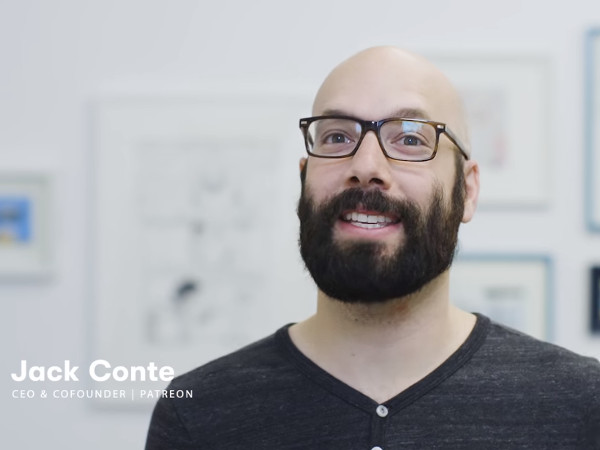Patreon Censors Content; Creators Fight Back
 SAN FRANCISCO – Patreon, a crowdfunding site where fans pay artists, writers, musicians, filmmakers and other creative individuals for exclusive access to work not available elsewhere, updated its terms of service last week, banning the sale of content vaguely classified as “pornography” and “fringe adult content” including “fetish content that is hard to distinguish from non-consensual sex.” In particular, Patreon called out adult websites, videos and webcam performers as those no longer allowed to use its platform.
SAN FRANCISCO – Patreon, a crowdfunding site where fans pay artists, writers, musicians, filmmakers and other creative individuals for exclusive access to work not available elsewhere, updated its terms of service last week, banning the sale of content vaguely classified as “pornography” and “fringe adult content” including “fetish content that is hard to distinguish from non-consensual sex.” In particular, Patreon called out adult websites, videos and webcam performers as those no longer allowed to use its platform.
However, the new terms noted, “fiction such as Game of Thrones or Lolita are allowed on Patreon.”
At first, Patreon members who create adult content were confused. Did their material violate Patreon’s terms of service, or not? How were they to know whether perfectly legal material would pass muster? What would become of the fans who subscribed to their Patreon pages if previously allowed creations went away?
Then, the creators got angry. Dozens of them signed an open letter to the company, accusing Patreon of the very thing its founders swore the company never would do: censor free expression.
“Your fuzzy position on ‘adult content’ versus ‘porn’ gives you the freedom to discriminate at will,” the letter states. “And it makes content creators live in fear of that discrimination, itself leading to self-censorship of important viewpoints.
“Porn is a multi-billion-dollar industry mostly in the hands of well-heeled men,” the letter continues. “You were helping us hold it in our own hands. We ask you to take a stand on behalf of the sex workers who use your platform, their fans, and everyone who supports freedom of expression.”
Censorship is a big issue for Patreon, which musician Jack Conte co-founded in 2013 and now serves as chief executive officer. From the outset, Conte said the company’s goal was to give creative individuals an outlet where work that otherwise might be censored or underappreciated could be funded by fans.
At least one academic has cautioned the company against confusing “exploitation” material with legitimate erotic expression.
“There’s a lot of amateur work on Patreon that blurs the line [between mainstream and ‘fringe’ adult content], including people who draw erotic images that are likely to be affected by this [change in the rules],” Dr. Bernie Hogan from the University of Oxford’s Internet Institute told the BBC. “And for some people, the notion that there is a strong distinction between porn that is bad and other expression that is good is not as tenable as it used to be.”
One Comment
Leave a Reply
You must be logged in to post a comment.














Pingback: Patreon Censors Content; Creators Fight Back – TripleXers Blog